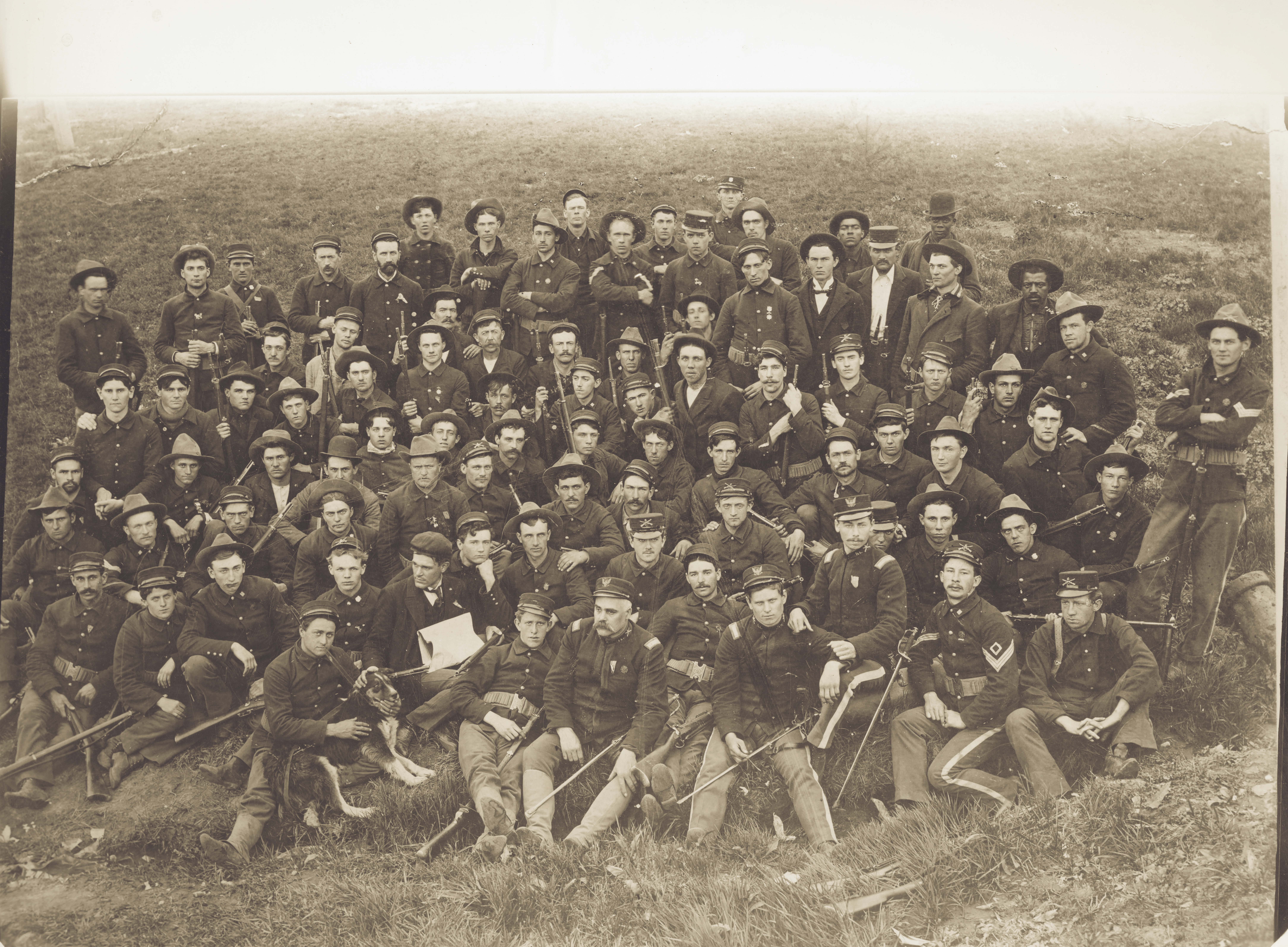Carl Sandburg was born in Galesburg, Illinois, in 1878. His Swedish immigrant parents were poor, and Sandburg left school at an early age to help support the family, working as a barbershop porter, a dishwasher, and a brickyard hand, among other odd jobs. At 17 he traveled west to Kansas as a hobo, but when the Spanish-American War broke out in 1898, he enlisted in the 6th Illinois Infantry. (He’s in the center of the photograph at right.) Sandburg landed at Guánica with his unit during the invasion of Puerto Rico later that year but never saw battle.
After the war ended, Sandburg briefly attended the U.S. Military Academy at West Point. (He left after two weeks when he failed a mathematics and grammar exam.) He then enrolled in Lombard College in Galesburg, where he began writing poetry. He completed four years there but did not earn a diploma. He then moved to Milwaukee, where he worked as an advertising writer and a newspaper reporter and met and married Lillian Steichen (whom he called Paula), the sister of photographer Edward Steichen. In 1913 the couple moved to Chicago, where Sandburg became an editorial writer for the Chicago Daily News. He also made a name for himself as a poet, publishing three volumes of free-verse poems in just five years. The second volume, Cornhuskers (1918) received the Pulitzer Prize for poetry. He was recognized as a member of the Chicago literary renaissance, which included Sherwood Anderson, Theodore Dreiser, Ben Hecht, and Edgar Lee Masters.
In the 1920s Sandburg began writing what would turn out to be a six-volume biography of Abraham Lincoln. In 1940 he was awarded the Pulitzer Prize in history for the last four volumes of the biography, published as Abraham Lincoln: The War Years, and in 1951 he was awarded a second Pulitzer Prize in poetry for his Complete Poems.
Sandburg died in 1967 at his farm in Flat Rock, North Carolina. “Carl Sandburg was more than the voice of America, more than the poet of its strength and genius,” President Lyndon B. Johnson said in observing his death. “He was America.”
The poem that follows is from Sandburg’s Chicago Poems (Henry Holt & Company, 1916).
WARS
In the old wars drum of hoofs and the beat of shod feet.
In the new wars hum of motors and the tread of rubber
tires.
In the wars to come silent wheels and whirr of rods not
yet dreamed out in the heads of men.
In the old wars clutches of short swords and jabs into
faces with spears.
In the new wars long range guns and smashed walls, guns
running a spit of metal and men falling in tens and
twenties.
In the wars to come new silent deaths, new silent hurlers
not yet dreamed out in the heads of men.
In the old wars kings quarreling and thousands of men
following.
In the new wars kings quarreling and millions of men
following.
In the wars to come kings kicked under the dust and
millions of men following great causes not yet
dreamed out in the heads of men.





